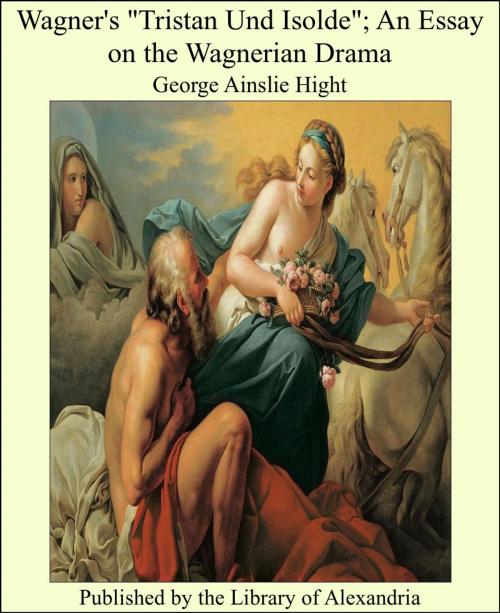Wagner's "Tristan Und Isolde"; An Essay on the Wagnerian Drama
Nonfiction, Religion & Spirituality, New Age, History, Fiction & Literature| Author: | George Ainslie Hight | ISBN: | 9781465539663 |
| Publisher: | Library of Alexandria | Publication: | March 8, 2015 |
| Imprint: | Language: | English |
| Author: | George Ainslie Hight |
| ISBN: | 9781465539663 |
| Publisher: | Library of Alexandria |
| Publication: | March 8, 2015 |
| Imprint: | |
| Language: | English |
The following pages contain little if anything that is new, or that would be likely to interest those who are already at home in Wagner's work. They are intended for those who are beginning the study of Wagner. In spite of many books, I know of no Wagner literature in English to which a beginner can turn who wishes to know what Wagner was aiming at, in what respect his works differ from those of the operatic composers who preceded him. Some sort of Introduction appears to me a necessary preliminary to the study of Wagner, not because his works are artificial or unnatural, but because our minds have become perverted by the highly artificial products of the Italian and French opera, so that a work of Wagner at first appears to us very much as Paradise Lost or a tragedy of Sophokles would appear to a person who had never read anything but light French novels. He must entirely change the attitude of his mind, and the change, although it be a return to nature and truth, is not easy to make. Those who wish fully to understand Wagner's aims must read his own published works. I have not attempted to give his views in a condensed form, being convinced that any such attempt could only end in failure. Whenever it has been made, the result has been a caricature; you cannot separate a man's work from his personality. All that I could do was to endeavour to lay some of the problems involved, as I conceive them, before the reader in my own words. [Greek: Theohus d' ephame eleountas aemas sugchoreutas te kahi choraegohus aemin dedo¯ke'nai to'n te Ap'ollo¯a kahi Mousas kahi dhae kahi tri'ton ephamen, ei' memnaemetha, Dionuson
The following pages contain little if anything that is new, or that would be likely to interest those who are already at home in Wagner's work. They are intended for those who are beginning the study of Wagner. In spite of many books, I know of no Wagner literature in English to which a beginner can turn who wishes to know what Wagner was aiming at, in what respect his works differ from those of the operatic composers who preceded him. Some sort of Introduction appears to me a necessary preliminary to the study of Wagner, not because his works are artificial or unnatural, but because our minds have become perverted by the highly artificial products of the Italian and French opera, so that a work of Wagner at first appears to us very much as Paradise Lost or a tragedy of Sophokles would appear to a person who had never read anything but light French novels. He must entirely change the attitude of his mind, and the change, although it be a return to nature and truth, is not easy to make. Those who wish fully to understand Wagner's aims must read his own published works. I have not attempted to give his views in a condensed form, being convinced that any such attempt could only end in failure. Whenever it has been made, the result has been a caricature; you cannot separate a man's work from his personality. All that I could do was to endeavour to lay some of the problems involved, as I conceive them, before the reader in my own words. [Greek: Theohus d' ephame eleountas aemas sugchoreutas te kahi choraegohus aemin dedo¯ke'nai to'n te Ap'ollo¯a kahi Mousas kahi dhae kahi tri'ton ephamen, ei' memnaemetha, Dionuson















